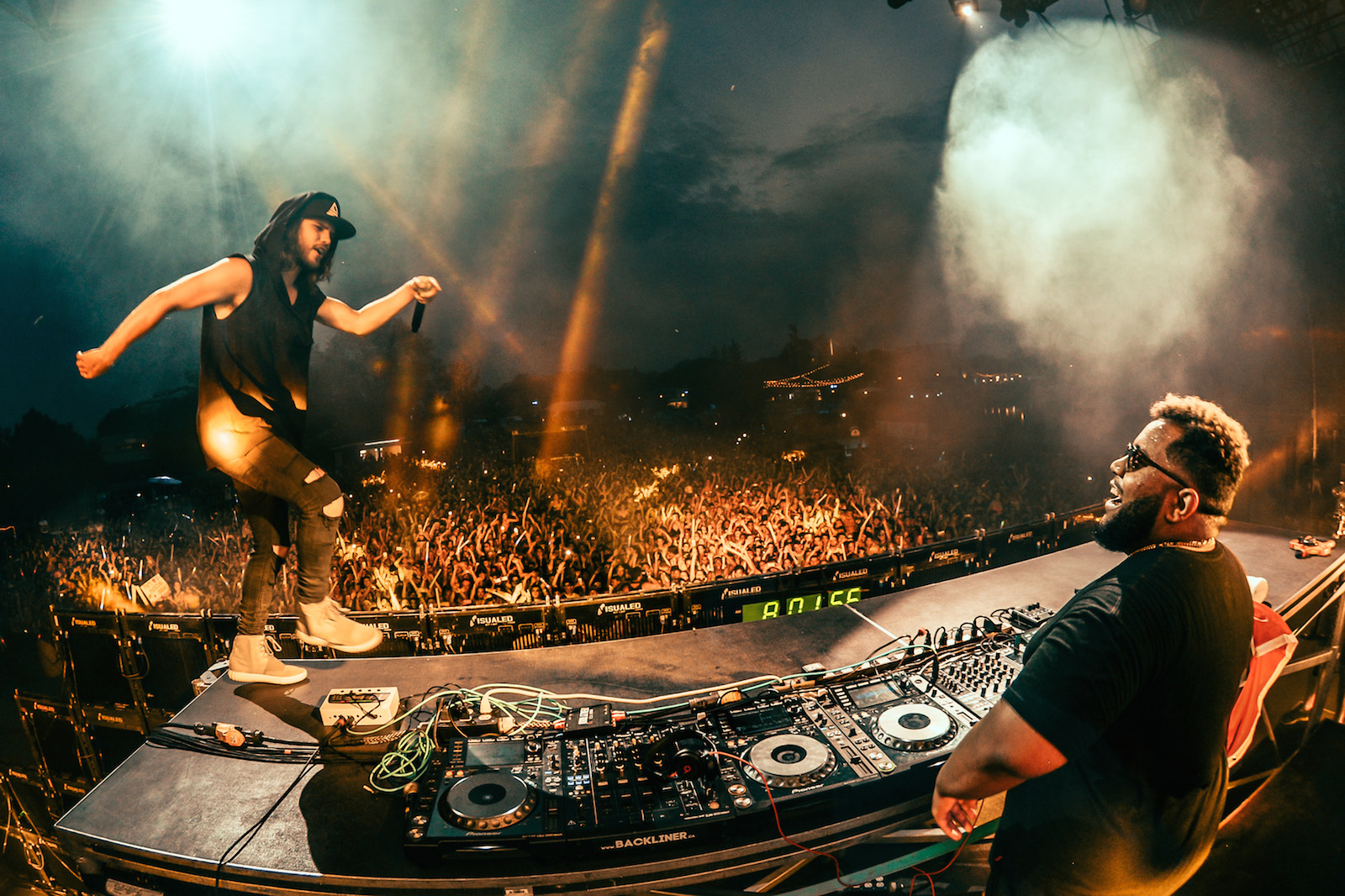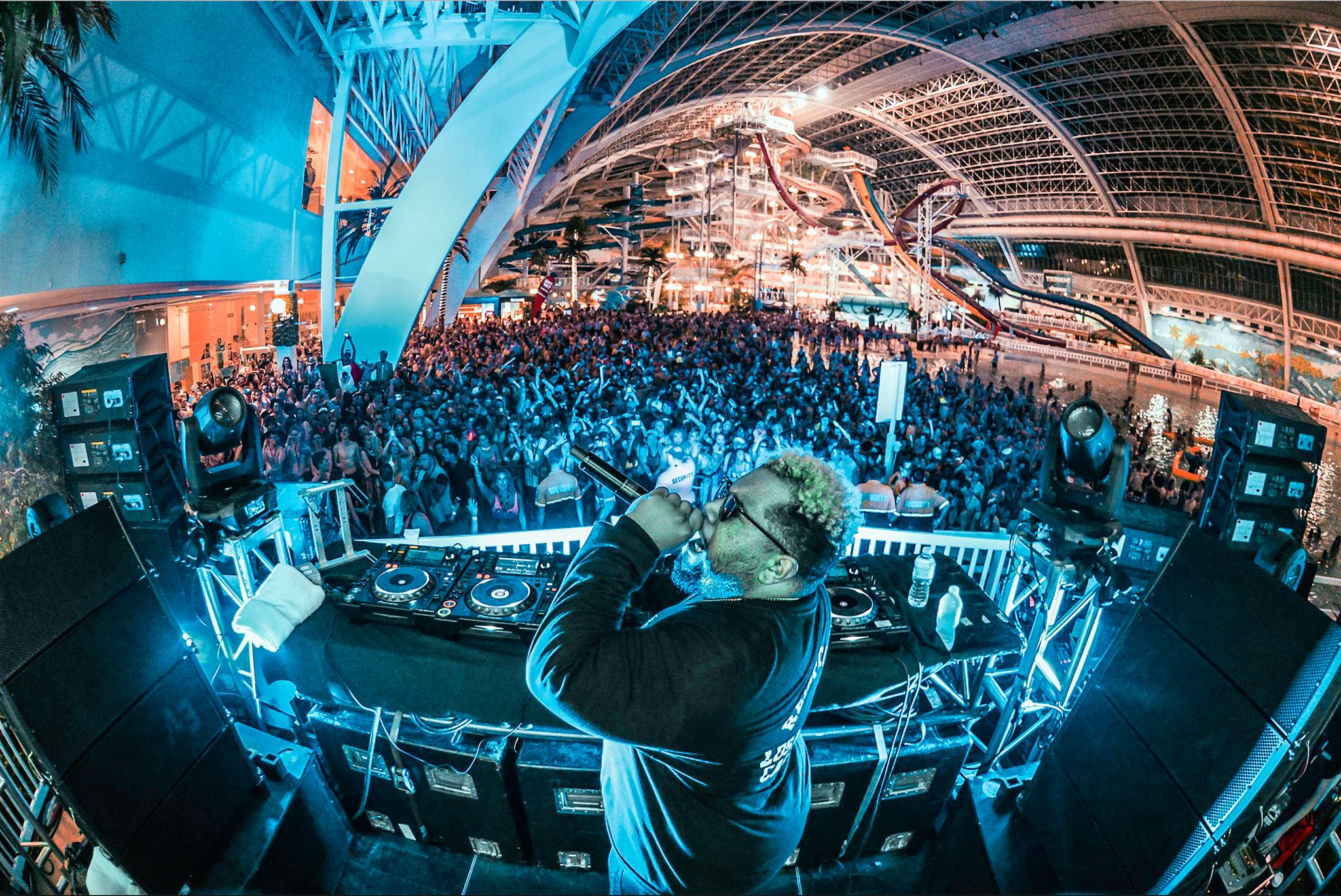William Selviz is an EDM photographer based in Vancouver. You can find more of his work on his Facebook page, Instagram, and Twitter.
This article was originally published on PetaPixel, and is being republished here with express permission from William.

Dear young, aspiring artist,
It is no secret that today’s society raised an eyebrow on you when you decided to pursue that degree on photography, graphic design, or whatever you’re passionate about but “doesn’t pay well”. And if you haven’t come to that point in life, give these words a thought.
Our generation is one of non-conformity; we are fortunate to live in a time where many have come up with unconventional business models to reinvent the wheel. From YouTubers making millions a year to DJ’s touring the world in a matter of months, there are more ways to balance economic and personal needs today.
It is almost intuitive to believe that certain career paths will make you successful and the rest will land you a job at Starbucks, or that not attending university will ultimately limit you to a job in the service industry. But oh God, I had never been happier to be wrong in my life.

A bit about my journey…
I’m an artist from a left-brained family; my father is an industrial engineer, my mother lawyer and my sister a geophysicist. As for me, I’ve been drawing and painting since the age of nine. My dream was to either attend Julliard or Rhode Island School of Arts and study fine arts or animation. It didn’t take long before my parents and school counselor advised me to look into sciences or engineering.
There I was, eighteen year-old me, choosing a career path that didn’t attract me in the first place. “Computer Science at the University of British Columbia” said my advisor. “Looks promising!” So I applied, and moved to Vancouver the following year. I knew I wouldn’t have the time to draw and paint so I taught myself photography during my senior year; it was the only visual medium that wouldn’t take a big chunk from my study time and it did the job when I needed an artistic outlet.

Almost instantly I started doing event photography at UBC. Coming from an Islamic country, where concerts and parties are forbidden, I had zero experience in the field and had to learn everything from scratch. Little by little I found my own style combining my knowledge in color and composition from drawing and painting with my eye for candid moments in street photography and gave concert photography my own touch. “Fine Art Concert Photography” I would call it at the time.
Defining my style boosted my exposure in the city and before I knew it I went from shooting frat parties and sweaty first-year dances to festivals in and out of town.

If you are either about to embark in University or you’re already in university, but unhappy with your decision, these are some things that kept my head above the water for the past three years:
Follow your gut feeling
Ignore mom and dad, and just snap away.
If making art is what moves you, don’t listen to what other say about it, do it for your own fulfillment and happiness. Balance out school and make time for a photo shoot, a jamming session, or drawing doodles if that is what you need.
The nightlife scene was intimidating for me at first; I was new to it and it demanded social and creative skills I never thought of working on. Through networking and building a strong portfolio, I managed to get myself out there. It didn’t come fast or easy; I started out shooting small first year events, and then moved on to nightclubs and concert venues.
Finally, by my second summer I was shooting festivals and flying out to other cities in Canada. But it always came down to following my gut feeling and what felt good to me. From every click I made on Lightroom to every festival I applied to, it was all something that just felt right. There were too many signs pointing at one direction and it was obvious I needed to give this a shot.

I fell in love with the energy of the stage and the Electronic Dance Music (EDM) scene and that is what I am passionate about at the moment. I tried to balance out this ‘hobby’ with a degree I hated with passion. But it was then when I realized this wasn’t for me, I needed to make art one way or another.
Your job and degree won’t matter more than your happiness
It is always a matter of time before you come to this realization. You’ve probably heard that cliché saying, “Do what you love. Love what you do” and even I was surprised to realize how true it is.
When you’re at the hardest point of your career, writing your most important paper, or sitting through a four hour lab coding an assignment, the only things that can help you thrive are intrinsic rewards and aspirations. But what if those never existed in the first place?
Now, let’s suppose you completed this undesired degree, so what is next? Sitting on a cubicle on a 9-to-5 job knowing that you could’ve been happier building your life around your true passion? It is likely to discard this possibility because we fear failure. But if we fear failure so bad, shouldn’t that be enough to make us successful in any field?

My point is: if you’re passionate, persistent, and curious to learn, then you have done everything that’s in your reach to succeed. That is, of course, if your definition of success is balancing happiness with economic needs.
Sometimes it’s about the journey, not the destination
Personally, I didn’t come to terms with this idea until I got to my third year in university and didn’t understand why I couldn’t push myself to study as hard as I always have. I felt a strong disjunction between what I was learning and what I actually wanted to learn. If I switch career paths, I would’ve wasted so much time and money.
I had developed great networking, digital marketing, and time management habits through concert photography and knew I needed to put these to use. “Do I see myself taking photos at concert the rest of my life?” No, I need to combine these skills with my original intentions.

Just put this into perspective:
Some of the leading photographers in this field today didn’t get a degree in photography or fine arts to begin with. Drew Ressler (@Rukes) is a computer scientist and worked in the videogame industry before he became the most reputable photographer in the EDM scene. Likewise, Matthias Hombauer first worked as a researcher with a PhD in molecular biology for years before he became one of the leading photographers in today’s industry.
What did both have in common? Neither knew what they were getting into until they tried something new, something fresh.

Here’s the bottom line: Although it might not seem clear at the moment, all skills you may gain from different fields, are tools you will need to build your future as an artist. Likewise, finishing your degree and pursuing your passion is always an option if you belive you can suck it up for the rest of your career.
Is academia for everyone?
This is a valid question to ask yourself. The extensive lists of resources we have at our fingertips today make us think twice before paying for a degree in photography or in the service industry. Websites such as Lynda and Codecademy (just to name a few) have smoothed the learning curve for anyone with the curiosity and willingness to teach themselves any desired skill.
I was fortunate to run into a few essays and studies that changed my perspective on academia while I was considering dropping out. David Suzuki, a well-known environmentalist and ex-professor at UBC, rants about the modern academic system in “The Prostitution of Academia” and argues that it is no longer a place for knowledge to be shared but sold. Institutions tend to prioritize corporate investment over improving learning tools and methods. It is a business model that has worked almost flawlessly since the success of the Ivy League schools and probably will not change anytime soon.

Statistical studies presented by senior research assistant, Stephanie Owen and senior fellow of economic studies, Isabel Sawhill in Should Everyone Go to College argue that going to college really depends on the individual’s end goals and thus may not benefit everyone equally. While the median yearly salary can be more beneficial for someone with a degree as they get older, this may not be the case for certain majors or career paths. I strongly suggest skimming through these two papers to get different eye on this topic.
Conclusion
Success should not be defined entirely by your salary or others’ expectations; it should be a balance between your own vision and prosperity. There’s no such a thing as time wasted as long as you’ve gained skills and gave your best at the time. Like photography, everything comes naturally when there’s passion and curiosity.

Don’t listen to mom and dad or anyone that tells you to be ‘realistic’, just snap away. Maybe like me, they’ll come to terms with your passion and support you when you decide to make your own path… and leave a trail for others to follow.






Leave a reply